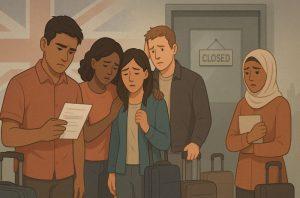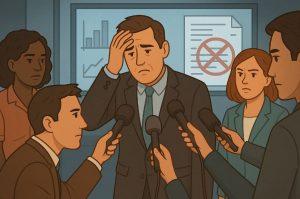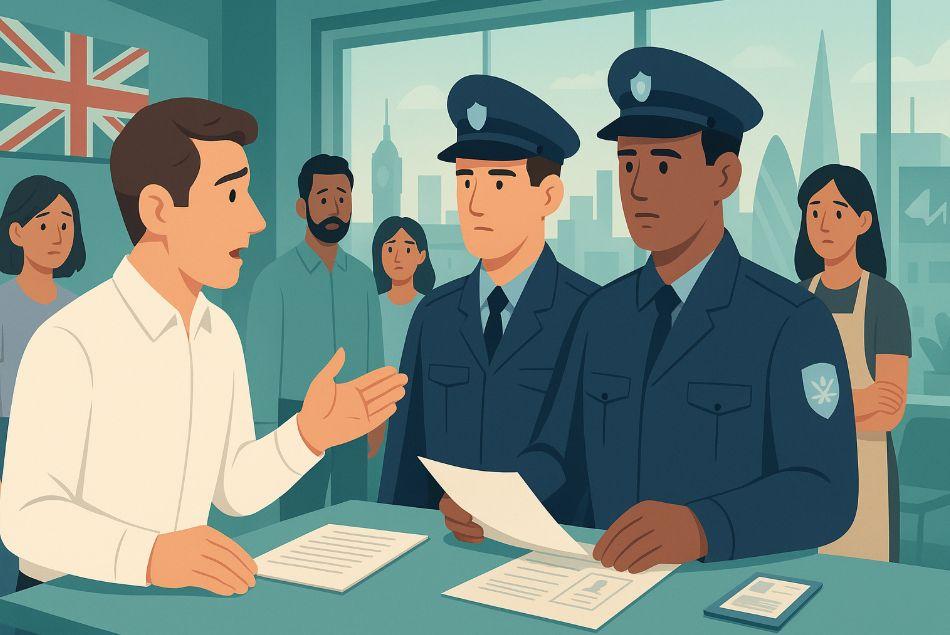The recent surge in licence revocations is largely due to non-compliance with Home Office guidelines. Many businesses especially small or medium-sized enterprises fail to stay updated with evolving immigration policies or lack robust internal systems to manage their sponsor duties.
In some cases, employers have been found issuing Certificates of Sponsorship for roles that either do not exist or fail to meet minimum salary and skill thresholds. False declarations, inadequate record-keeping, and employing workers in roles not aligned with the job description submitted to the Home Office are among the leading causes of licence revocations.
As the government intensifies its efforts to curb abuse of the immigration system, it has become less tolerant of errors, even those made unintentionally. In London alone, there has been a noticeable uptick in the number of revoked licences, particularly in care, hospitality, and cleaning sectors industries that have become increasingly dependent on migrant labour post-Brexit.
Which Industries Are Most Affected by Visa Licence Revocations?

Certain industries face a disproportionately high risk of sponsor licence revocations due to the nature of their operations and urgent workforce needs. The care sector, for example, has witnessed a sharp rise in enforcement action. Many care homes and agencies, desperate to fill staffing gaps, have rushed to sponsor overseas workers without implementing proper HR and compliance processes.
The hospitality industry is also under the microscope, especially restaurants and hotel groups that have failed to keep detailed employment records or have sponsored roles that fall outside the Home Office’s skilled occupation list. Agriculture and construction, which rely heavily on seasonal and manual labour, have likewise experienced licence losses due to poor oversight or false reporting.
These sectors, while essential to the UK economy, often struggle with balancing urgent recruitment needs and the slow, meticulous nature of immigration compliance creating fertile ground for violations.
How Do Home Office Inspections Lead to Licence Revocations?
The Home Office conducts both scheduled and surprise compliance visits to businesses that hold sponsor licences. These inspections assess whether a business is fulfilling its duties, managing visa-related responsibilities properly, and keeping its sponsored employees within the legal framework.
Inspectors look for issues such as missing documentation, discrepancies between reported and actual job roles, employees working unauthorised hours, or even the presence of individuals not on the sponsorship records. Any serious breach discovered during these audits can result in immediate licence suspension.
One of the most common triggers for an inspection is a tip-off or complaint sometimes from former employees, competitors, or members of the public. In other cases, irregularities in visa renewal applications may flag a business for further scrutiny.
What Are the Legal and Financial Consequences of Losing a Sponsor Licence?
The revocation of a sponsor licence can be devastating. All migrant workers sponsored under the licence will have their visas curtailed, typically within 60 days. These workers are then left with two options: secure a new sponsor or leave the UK. Businesses, in turn, lose access to critical employees, often with no time to replace them.
Beyond staffing problems, there are legal implications. Employers may face fines, disqualification from reapplying for a new sponsor licence for at least 12 months, and reputational damage that could deter future investors, partners, or employees.
Financially, the impact is severe. Delays in projects, disrupted services, and legal costs can quickly mount. Some businesses have also faced civil penalties and public naming in enforcement reports, which further compounds the damage.
How Are Migrant Workers Impacted by Revoked Licences?

When a sponsor licence is revoked, it’s not only the business that suffers. Migrant workers are left in precarious positions, often with little warning. Many lose their jobs, housing, and income almost overnight. In some cases, they are unaware that their visa has been affected until they attempt to renew their documentation or re-enter the UK.
If unable to find a new sponsor within the allowed period, they must leave the country disrupting careers, education, and family life. The revocation can also create negative marks in their immigration history, making future applications more difficult. In extreme cases, workers who remain in the UK without valid sponsorship risk becoming undocumented, exposing them to detention or deportation.
What Role Do Changes in Immigration Policy Play in Revocations?
Immigration policy in the UK has undergone significant changes since Brexit, with the introduction of the points-based system aimed at attracting high-skilled migrants. However, this shift has also led to stricter controls, higher thresholds, and increased monitoring of businesses.
Policy updates in 2024 included a raise in minimum salary levels for sponsored roles, tighter restrictions on low-wage job sponsorships, and more funding for compliance officers within the Home Office.
These measures were introduced to reduce the risk of abuse, but they also made it easier for businesses to fall foul of technical rules especially those unfamiliar with the evolving requirements. As a result, even minor errors are now more likely to lead to enforcement action, contributing to the rising number of revocations.
What Can Employers Do to Avoid Losing Their Sponsorship Licence?
The key to avoiding revocation lies in building a strong compliance culture. Employers must understand that securing a sponsor licence is not a one-off task. it’s an ongoing responsibility. Staying updated with policy changes, conducting regular internal audits, and keeping accurate employment records are essential.
Additionally, businesses should consider appointing a dedicated compliance officer or HR manager trained in immigration procedures. Seeking external legal guidance can also prove invaluable, especially when dealing with complex cases or inspections.
Preventative action is not just a regulatory necessity it’s a strategic move to protect the workforce and ensure business continuity in an increasingly regulated environment.
Are There Any High-Profile Cases of Sponsor Licence Revocations?

Recent news has highlighted several cases where even well-established businesses lost their sponsorship rights due to compliance failures. A prominent London-based care agency, for instance, lost its licence after underpaying over 50 international workers some of whom were forced to leave the UK within weeks.
Another case involved a chain of restaurants that had been routinely assigning Certificates of Sponsorship for roles that did not meet skill-level requirements. During a surprise inspection, the Home Office found that workers were performing tasks not listed in their official job descriptions, leading to an immediate revocation.
These stories have served as a wake-up call for many employers, proving that no business regardless of size or reputation is immune from scrutiny.
What Does the Future Hold for UK Migrant Worker Visas and Sponsorship?
As political pressure mounts to reduce net migration, it is likely that immigration enforcement will remain a top priority for the UK government. Future changes may include additional salary thresholds, role eligibility updates, and further automation in compliance checks.
However, there is also growing advocacy for reform. Industry bodies, legal experts, and human rights groups are calling for clearer guidelines, better training resources, and more support for small businesses navigating sponsorship rules.
While the long-term future remains uncertain, one thing is clear: businesses must treat visa sponsorship with the same seriousness as financial or legal compliance. The stakes are simply too high to ignore.
Conclusion
Revoking a migrant worker visa licence is more than a bureaucratic measure. it disrupts lives, businesses, and industries. As the UK tightens its immigration controls, both employers and migrants must stay alert and informed.
For companies, investing in compliance is no longer optional. For migrant workers, understanding your rights and employer obligations can protect your future in the UK. As scrutiny intensifies, informed action remains the best defence.
FAQs
What happens to a migrant worker when a sponsor’s licence is revoked?
The worker’s visa is usually curtailed, and they are given a 60-day window to find a new sponsor or leave the UK.
How can a business appeal a revoked sponsor licence?
Businesses can appeal through the Home Office’s administrative review process or reapply after 12 months with corrective evidence.
Can a revoked licence affect other branches or companies under the same ownership?
Yes, the Home Office may assess all entities connected to the same owners or directors when taking enforcement actions.
Is it possible to prevent Home Office inspections?
No. Inspections are mandatory and can be unannounced. The only solution is to remain constantly compliant.
Are revocations more common in small businesses?
Smaller businesses often lack dedicated compliance teams, making them more vulnerable to breaches, but revocations happen across all sizes.
Does having a clean record guarantee protection from revocation?
Not necessarily. Even one major breach, like false sponsorship or poor record-keeping, can lead to revocation.
Can revocation be reversed once issued?
It is rare, but possible in certain cases if sufficient evidence is provided during appeal or review.









Leave feedback about this